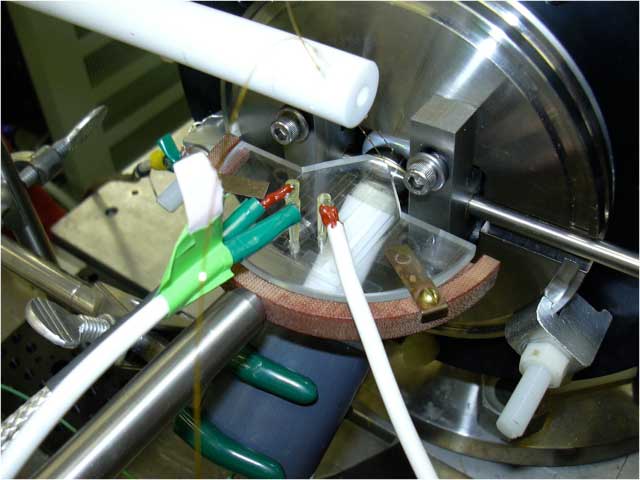National Institutes of Health
MALDI Mass Spectrometry for Microfluidic Chip Detection
- R21 RR015016
- $474,047
- Role: PI
- 8/2001-6/2003
Abstract
Microfluidic chips have many advantages for the analysis of biomolecules such as low cost, small size, low sample consumption, high sensitivity, and rapid analysis, yet the available methods of detection are limited. The goal of this research project is to develop a new detector for microfluidic chips using MALDI mass spectrometry with a rotating ball inlet (ROBIN) interface for on-line MALDI. The rotating ball acts as mechanical transport mechanism that delivers the compounds on the microfluidic chip to a time-of-flight mass spectrometer for laser desorption and ionization. The matrix solution is mixed with the analyte on the chip before reaching the rotating ball interface where it is deposited and dried to form the MALDI target. The ROBIN MALDI interface is a novel approach to on-line MALDI liquid introduction and preliminary studies indicating its feasibility have been performed. The interface is compatible with any existing MALDI matrix and does not suffer from memory effects. The research described in this proposal involves a collaboration that combines the expertise at Georgia Tech in microfluidic device design and fabrication with the expertise at Emory in MALDI mass spectrometry. The groups will jointly develop the chip to ball interface and mass spectrometer connection that will allow MALDI to be used as a microfluidic chip detector. Microfluidic chip ROBIN MALDI will have a significant impact on high throughput biomolecule analysis for proteomics and genomics applications. In potential applications, proteins can be purified, separated, digested on-chip and then rapidly mass analyzed. DNA can be extracted from individual cells, amplified by PCR for sequencing, gene probe, or other analysis. Mass spectrometry is generally applicable and provides more information than fluorescence detection such as molecular weight structural information from fragmentation patterns. MALDI is more tolerant of impurities than electrospray ionization and does not suffer from signal instability when started and stopped as does electrospray. Novel chip fabrication procedures will be developed for the construction of a robust interface between the chip and the mass spectrometer. These developments will have broad applicability in microfluidic chip interconnection and interfacing.

